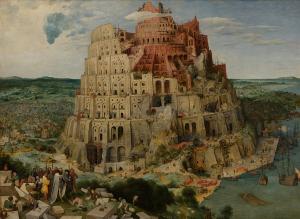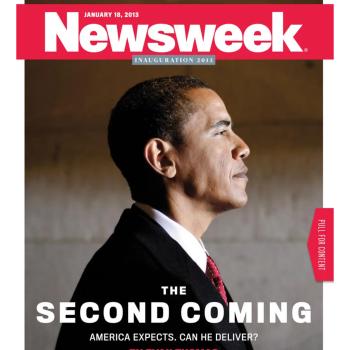
At my church, Mosaic Waco, my co-pastor, Slim, and I are preaching through the book of Isaiah. The task is daunting, not merely because of the length of the book, but because the constant word of judgment can often be wearying for the people of God. Yet I am still constantly surprised by the material that I find in the Scriptures, even more so when it matches up so nicely with where my mind has been and will be all year: in the denunciation of violent forms of domination and exploitation.
For the past few months, we’ve preached through the oracles against the nations found in Isaiah 13-23. These oracles are not only aimed at Israel’s neighboring nations but at Israel and Judah themselves, emphasizing that the Lord holds His people to the same standard as the rest of the world. But in going through these texts, I was struck anew with how relevant they are to my own life, particularly my journey with American history. It became abundantly clear when the three oracles that I preached from were oracles against Babylon, Egypt and Tyre: perhaps the nations and cities that are paradigmatic for my understanding of American history.
Babylon, as an empire that shows up throughout the Scriptures from Genesis (11) to Revelation, is a paradigmatic example of imperial brutality. I shouldn’t have to explain the relevance of that fact but I will: one author recently has estimated that the United States has been responsible for or shares responsibility for close to 300 million deaths through its imperial pursuit. Its history drips with blood: the deaths of the indigenous who were dispossessed, the deaths of the enslaved Africans who rebelled, committed suicide, or faced death by other means, the deaths that have resulted from various wars…the list goes on. If one is not shocked by the number, one ought to look to the particulars of the kind of death that we see throughout our history. As I have emphasized before, I’m a scholar of lynching, the most violent and spectacular instantiation of white supremacy in this country’s history. One of the reasons that I find most compelling for the fading of spectacle lynching is the fact that this country received negative international attention at a time when it was building its global dominance. Ida B. Wells-Barnett closed one of her editorials with this response of the French press when progressives in America expressed outrage over the anti-Semitic treatment of Captain Alfred Dreyfus, a Jewish officer who had been convicted of treason in France: “Stop your lynchings at home before you send your protests abroad.” This was not the only case where other nations told the US to get its own house in order before it deigned to dictate the ways of any other. Such a response was not unwarranted when the years at the height of lynching were years when thousands of Black men, women and children were shot, drowned, hanged, and burned alive. Brutality is painfully common in our history.
Egypt provides another paradigm: the paradigm of the enslaver. It is not for no reason that the LORD is introduced to the people with these words: “I am the Lord your God, who brought you out of Egypt, out of the land of slavery.” These words loom large in the theological and ethical imagination of many African American Christians because they were words that they could desperately cling to throughout the brutal social hegemony of racialized chattel slavery. To Black Christians reading the Exodus, the characters have been clear: The United States has not been in the position of God’s chosen people. Rather, it was Egypt. After all, it was the nation with extensive legal and social structures meant to maintain a brutal, racialized regime of domination. Consider the number of sections of the Constitution meant to defend and protect such a regime. Here are a few examples:
Article 1, Section II affirms, for tax purposes, the full personhood of “free” people and indentured servants, denies the personhood of indigenous folks, and relegates enslaved people to three-fifths of a person. In a sense, ⅗ was even worse than complete denial because not only were enslaved persons stripped of their political power, but they were considered capital, taxable property. Southern slaveholders had a perverse political benefit: the more you enslave, the richer you are. And the more you enslave, the more political power your state has.
Article 1, Section 8 gave Congress authority to suppress slave insurrections. So basically if you attempt to resist a fundamentally unjust and exploitative system, the US Militia will crush you.
Article 4, Section 2 required the return of fugitive slaves.
These and other pieces of the text shaping the census created a legal foundation for a nation in which power that called itself “white” would dominate. Like the relationship between Israel and Egypt, the primal trauma of enslavement was an identity-forming one, not only for the enslaved but for the enslaver. It is a paradigm that ought to haunt every era of American history.
The final city, however, is the most compelling to me: Tyre. The home of the famed ships of Tarshish, Tyre lay at the center of Phoenicia, a region known for its role in commerce. For a modern parallel, Tyre, a city whose wealth depended on its harbor, is New York City, a city whose wealth also depended on its harbor…and the enslaved labor that was funneled through it especially in the 18th century. In 1711, a slave market opened on Wall St., prefiguring the fact that Wall Street would represent the financial center not only of this country but, in some estimations, the world. Then, it spoke to the seeming ubiquity of racialized chattel slavery. Today, it speaks to the hegemony of global financial capitalism. Exploitation, regardless of the numerous modes of justification erected to support it, ought to grieve us. The story of the United States, however, is saturated with it.
It’s incredibly dark to frame American history in these terms: with Babylon, Egypt, and Tyre as paradigms. Some will ask, “what about the nation’s promises and values?”, hoping that this dilutes or in some way atones for the bloodshed. It does not. It cannot be ignored that especially for Black and Indigenous inhabitants, it has historically been not a land of freedom but one of bondage whose tendrils are long. Babylon, Egypt and Tyre are the best parallels. The logics of brutality, oppression, and exploitation have driven not only many of the events in the history of the nation in which we live, but they have provided in many ways the foundation of its current wealth and influence. To get to the light, sometimes we have to walk through the darkness.













